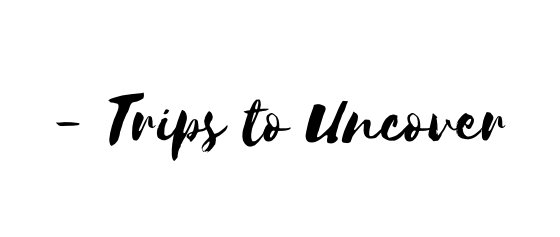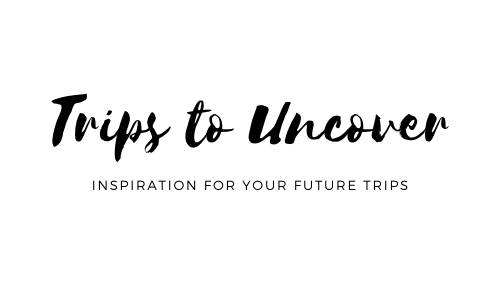If I had the opportunity to live in Europe, I could definitely see myself living in Vienna. The Austrian capital is beautiful, sophisticated, clean, and filled to the brim with arts and culture.
When my boyfriend and I visited Vienna during the last leg of our European back-packing trip, we had the pleasure of being toured around the city by my father’s aunt and cousin who both live there. It was wonderful to see the city with two locals!
DAY 1
St. Stephen’s Cathedral
One of Vienna’s most famous landmarks, located in the centre of the old town. Wolfgang Mozart’s funeral occurred here and the Ducal Crypt contains bodies, hearts or organs of 72 members of the Habsburg dynasty. See if you can spot the Turkish cannonball stuck on the exterior and then take a look inside the church!
St. Peter’s Church
Speculated to be the oldest church in Vienna, founded in the Middle Ages.
Anker Clock
At noon every day, the Anker Clock chimes in the Hoher Markt – the oldest square in Vienna – and presents 12 figures from history with background music.

The Hofburg
The former main imperial palace of the Habsburg dynasty rulers, as well as emperors of the Holy Roman Empire, and Emperors of Austria. Today, the Hofburg serves as the residence of the President of Austria.
A tour of the Hofburg includes the Imperial Apartments, the Sisi Museum, and the Silver Collection. The Hofburg is one of the places where I learned a lot about Empress Elisabeth of Austria (also known as Sisi). Sisi had a very fascinating life, so I recommend visiting the Imperial Apartments and the Sisi Museum!
Don’t miss walking through the Burggarten to see the statue of Mozart.
The Imperial Treasury
Consists of 21 rooms filled with treasures that were compiled by the Habsburgs over the course of centuries. The treasures include the Imperial Crown, Orb, and Sceptre of Austria, and the Imperial Crown of the Holy Roman Empire.
Austrian National Library
The largest library in Austria and the most beautiful I have ever seen. Highly recommend!

Augustinian Church
The parish church for the imperial court of the Habsburgs. Many Habsburg weddings took place here, including the wedding of Archduchess Maria Theresa to Duke Francis of Lorraine (Marie Antoinette’s parents), Emperor Napoleon Bonaparte to his second wife Marie Louise, and the wedding of Emperor Franz Joseph to Duchess Elisabeth of Bavaria (Sisi). The Herzgruft (Heart Crypt) contains 54 hearts of members of the Habsburg Dynasty.

DAY 2
Belvedere
A Baroque palace complex built as a summer residence for Prince Eugene of Savoy, now serving as one of the leading art museums in the world. The Upper Belvedere is the most visited art museum in Austria and houses works by Klimt (including The Kiss), Monet, and van Gogh. The Lower Belvedere contains interesting art exhibitions from various periods, including the Middle Ages.
Make sure to visit the gardens!
Hochstrahlbrunnen
A magnificent fountain built to celebrate the opening of Vienna’s first water pipeline, which was the first source of safe public drinking water in the city. The fountain contains 365 small waterspouts around the edges, symbolizing the days of the year, 7 larger waterspouts for the days of the week, 12 high jets for the months, 24 lower jets for the hours of the day, and 30 jets in the centre for the days of the month. The fountain lights up at night in 6 different colours!
Stadt Park
A beautiful park famous for its statues and picturesque views.
Karlskirche
Considered the most outstanding baroque church in Vienna.
Vienna State Opera
Beautiful world-wide famous opera house. The opening premiere was Don Giovanni by Mozart in1869 where Emperor Franz Josef and Empress Elisabeth (Sisi) were present.

Annakirche
Known for its amazing gothic interior. I highly recommend taking a quick look!
Capuchin Church
Famous for the Imperial Crypt, housing the bodies of 145 members of the Habsburg Dynasty, including Empress Maria Theresa (Marie Antoinette’s mother), Emperor Franz Joseph, Empress Elisabeth of Bavaria (Sisi), and Archduke Rudolf (Sisi’s son who died in a suicide pact with his mistress).
DAY 3
Schönbrunn
The former main summer palace of the Habsburg rulers with 1,411 rooms and immense grounds. The palace in its present form was built and remodelled during the reign of Empress Maria Theresa. Emperor Franz Joseph (Sisi’s husband) was born and died here.
A tour of the palace includes the beautiful imperial apartments and state rooms where you will learn more about Empress Maria Theresa, Emperor Franz Joseph and Empress Sisi.
The beautiful gardens contain several attractions, such as the Wagenburg (museum of royal carriages and vehicles), the Tiergarten Schönbrunn (the Vienna Zoo), the Palmenhaus and Wüstenhaus (greenhouses), the Orangerie, a maze, fake Roman Ruins, fountains, and sculptures.
Naschmarkt
The Naschmarkt is Vienna’s most popular market that has existed since the 16th century. This was the view from our hostel bedroom!
MuseumsQuartier & Maria-Theresien-Platz
The MuseumsQuartier is a complex of several famous museums in Vienna. Directly across the street is the Maria-Theresien-Platz, a beautiful square containing two more well-known museums.

Heldenplatz & Volksgarten
The Heldenplatz is a lovely square in front of the Hofburg and directly to the north of the square is the beautiful Volksgarten.
Burgtheater
Serves as the Austrian National Theatre, one of the most important theatres in the world. The Burgtheater was created in 1741 by Empress Maria Theresa who wanted a theatre next to her palace (the Hofburg). Three Mozart operas and Beethoven’s First Symphony premiered here.
Rathaus
A very impressive Neo-Gothic building that houses the seat of local government of Vienna.
Votivkirche
Following the attempted assassination of Emperor Franz Joseph in 1853, the Emperor’s brother created a church to thank God for saving the Emperor’s life.
BONUS: Viennese Concerts and Cafe Hopping
A great nighttime activity in Vienna is to see a Viennese Concert. My great-aunt treated my boyfriend and I to a classical concert given by the Vienna Hofburg Orchestra at the Hofburg and we loved it.
In between your sight-seeing, make sure to pop into some of Vienna’s famous historical Cafes and Coffee Houses where great creative thinkers of the city and around the world have frequented.
A great list of the most important Cafes: https://www.viennawurstelstand.com/guide/10-coffeehouses-that-have-inspired-viennas-greatest-artists-and-writers/
I hope you enjoyed this 3-day itinerary for Vienna!






